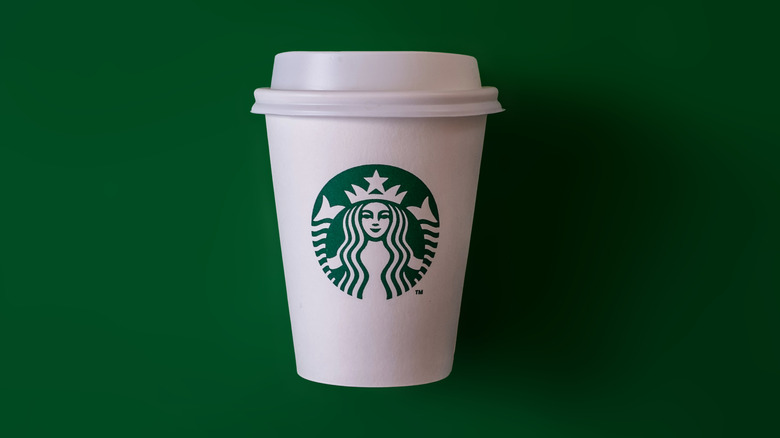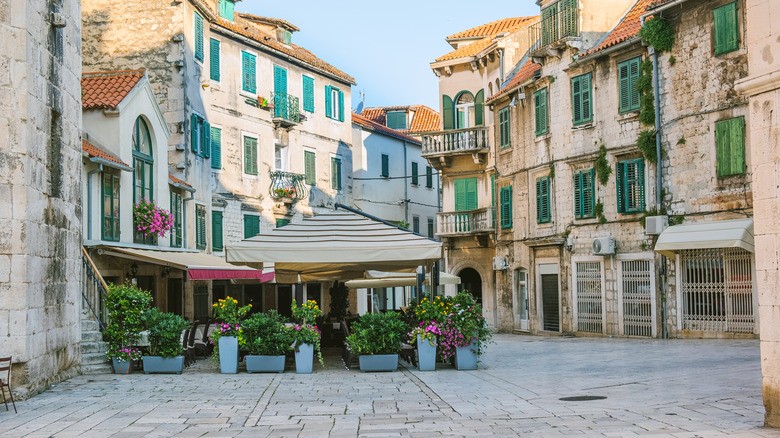The Possible Reason You Won't Find Starbucks In Croatia Anytime Soon
Roll up into any town in America with more than a handful of traffic lights, and you're apt to find at least one Starbucks, framed by a line of cars waiting in the drive-thru queue. From a venti PSL to a grande Iced Caramel Macchiato, Starbucks drinks are popular with Americans. Still, the coffee crave isn't specific to just the United States.
The Starbucks brand can be found in 80 countries boasting more than 32,000 stores worldwide. It's a go-to spot to pickup delicious, cafe beverages. But, when in Europe, coffee has a cultural significance beyond being just a grab-and-go beverage in a paper cup. In fact, Visit Europe notes that what happens while sipping on your coffee of choice "is just as important as what's in your cup."
Of course, European cities such as London and Milan have welcomed the American behemoth in their midst — but, Croatia hasn't followed suit. Croats love to linger with friends over a cup of coffee at their favorite local cafe, and this doesn't fit Starbucks' model of high customer turnover. To date, not one single Starbucks has set up shop in this Balkan country.
Why not Croatia?
At one point, Starbucks actually did consider the Croatian capital city of Zagreb as its entry point into the Croat coffee culture. While there are no substantial reports listing the exact reasons why Starbucks hasn't landed in Croatia, the likely reasons come down to finances: the business clearly don't see expansion into the country as a profitable endeavor.
There are already cafes all over the country. From Quahwa in Zagreb, Split's D16 Coffee, to Cogito Coffee in Dubrovnik's Old Town, Croats have their favorite cafes to catch up with friends over a cup of coffee, or "kava" as the locals call it. "Ajmo na kavu," which translates to "let's go for coffee," is part of the Croatian vernacular for goodness sake. And, they take their time.
It's quite questionable if Croatians would even consider coffee to-go. Dubrovnik native, Paulina Hudspeth blogged for RIT Global about what can easily be considered a daily ritual for Croatians: "It perfectly reflects our tendency to take life at a slower pace, which means there is always time for a cup of pleasure." In response to the idea of coffee-to-go, she simply says, "No, thank you."
It doesn't take an economist to understand that if Starbucks were to become a Croatian household name, the company would have to shift its current model so much that turning a profit would take as long as turning its tables. The Starbucks menu items and cafe layouts are designed for high traffic. So, if you do find yourself at a Croatian cafe, relax, enjoy the company, and savor every sip. You may even be inclined to extend the gesture "Plaćam kavu," meaning "coffee is on me."

